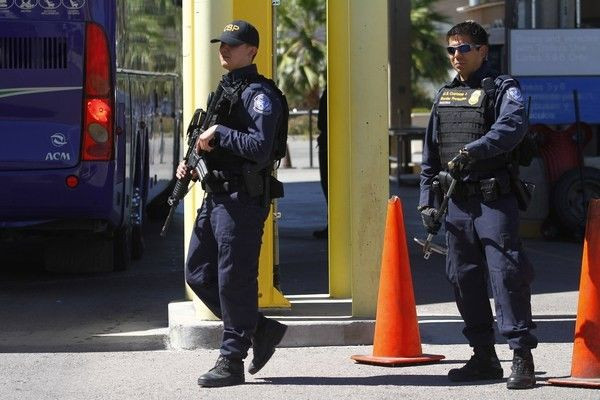Iran Warns Citizens Against US Travel, Cites ‘Iranophobia’

Iran’s Foreign Ministry advised Iranian citizens to avoid unnecessary travel to the United States this week following the “suspicious death of an Iranian national after interrogation by U.S. airport officers.”
“The purposive trend of [promoting] Iranophobia in the United States has created conditions which make any travel by Iranians to that country precarious,” Ramin Mehmanparast stated on Monday. “Recalling previous warnings by [Iran’s] Foreign Ministry to that effect, the countrymen are recommended to avoid unnecessary travels to this country, and if they do travel, show maximum degree of caution.”
Mehmanparast reiterated that the U.S. was a “high risk” destination for Iranian travelers. His statement came days after the Washington Post reported that a 73-year-old Iranian citizen named Daryoush Sarreshteh died 48 hours after “intense questioning” by U.S. customs officials on Nov. 6 at Dulles International Airport.
Sarreshteh was traveling through Washington, D.C., with his wife on the night of the U.S. election, and his family claims the interrogation by customs officers is to blame for his sudden heart attack. They are reportedly considering filing a lawsuit against the customs office.
Mehmanparast called the “unconventional five-hour interrogation and inhumane treatment” of the elderly Iranian “unacceptable,” and he asked relevant U.S. officials and organizations to look for the precise cause of the incident and deal with any possible oversight.
Customs and Border Protection spokesman Stephen Sapp told the Post that “Mr. Sarreshteh’s admissibility review was of a routine nature,” adding that CBP “strives to treat all travelers with respect and in a professional manner.”
The U.S. State Department renewed its travel warning for Iran on Dec. 7, saying American citizens should avoid all nonessential travel.
“U.S. citizens may be subject to harassment or arrest while traveling or residing in Iran,” the warning reads. “Iranian authorities also have unjustly detained or imprisoned U.S. citizens on various charges, including espionage and posing a threat to national security.”
An angry Islamic mob overran the U.S. Embassy in Tehran on Nov. 4, 1979, taking 52 Americans hostage and effectively ending diplomatic relations between the two nations. Iran released the hostages 444 days later, but the U.S. and Iran remain hostile and are currently engaged in an extended dispute over Tehran’s controversial nuclear program.
© Copyright IBTimes 2024. All rights reserved.






















